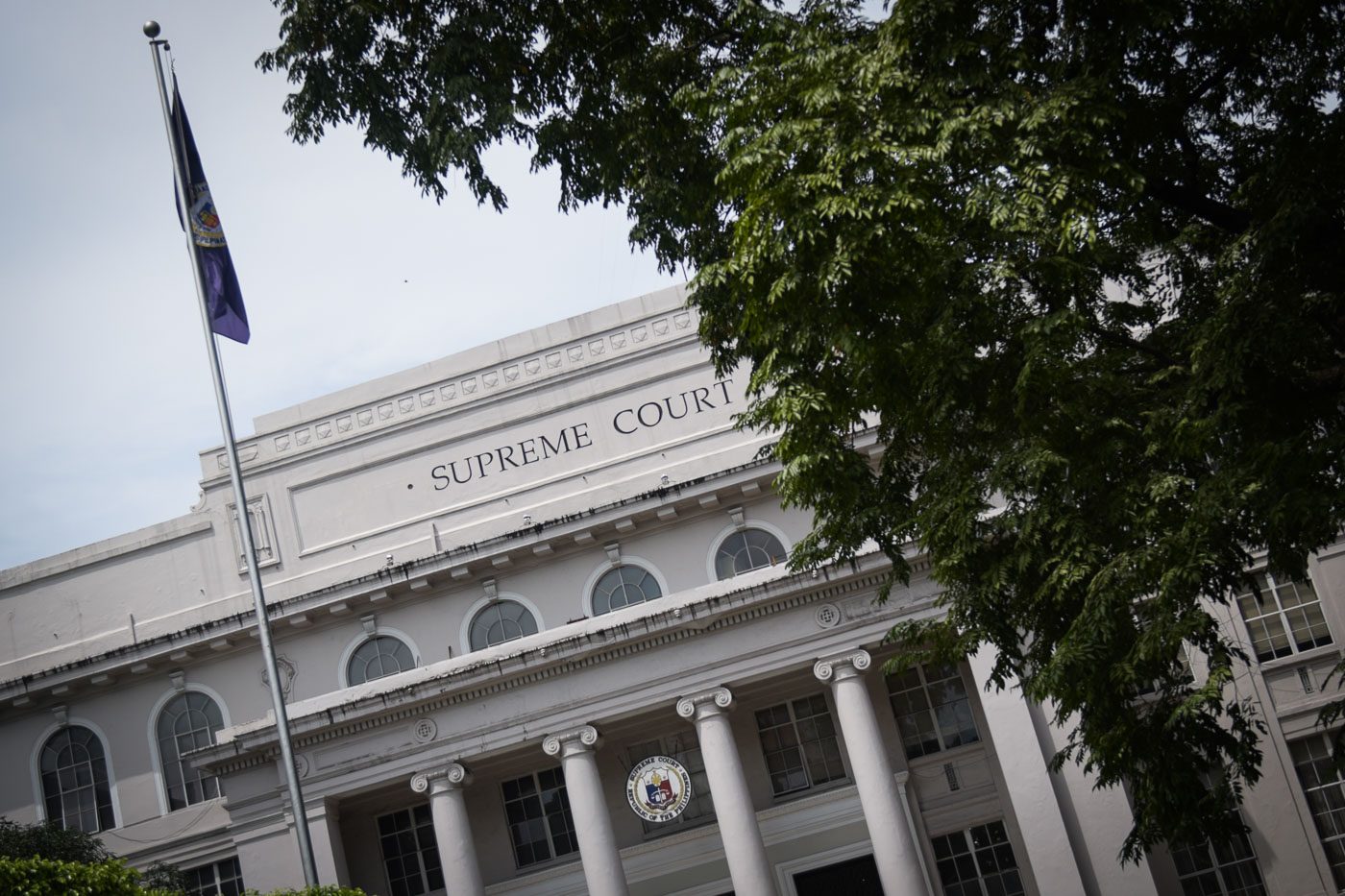SUMMARY
This is AI generated summarization, which may have errors. For context, always refer to the full article.

MANILA, Philippines – The Supreme Court will now decide whether to stand firm on an earlier order to compel the government to submit full documentation of Oplan TokHang to the court, or side with Solicitor General Jose Calida who argued that the release of documents will put national security at risk.
Both petitioners have submitted their comment-opposition to Calida’s motion for reconsideration (MR) and under the rules, the matter is now considered submitted for resolution by the court.
The Center for International Law (CenterLaw) and the Free Legal Assistance Group (FLAG) submitted their comment opposition on Thursday, February 8, asking the court to finalize their order to be furnished full documentation of the legitimate police anti-drug operations that led to more than 3,000 deaths.
“Non-disclosure is tantamount to a denial of the right to information on matters of public concern. It would make public accountability and transparency meaningless and transform these doctrines into mere empty words,” FLAG said in the comment prepared by human rights lawyer Jose Manuel “Chel” Diokno.
“Good precedent”
Diokno said that the order to submit documents is a good precedent.
“It will make the government more transparent and more accountable, and will go a long way in the fight against impunity and excesses by those clothed with government authority,” Diokno said.
Diokno urged the Supreme Court not to hesitate “to exercise their inherent power to do all things reasonably necessary for the administration of justice within the scope of its jurisdiction.”
CenterLaw, for its part, said the request for these documents shouldn’t be so difficult in the first place, because they are public documents. CenterLaw noted that relatives who have inquired about the killings before were either arrested or charged.
“Their attitude before this Honorable Court in relation to its directive to produce the required documents is undeniable evidence of the futility and risks of getting such information from the police notwithstanding that these are supposedly public documents,” CenterLaw said.
CenterLaw and Diokno’s comments agree on that point.
But Diokno added that in order not to put in danger the persons on the drug lists – among the documents being sought – Calida can just ask that the names not be made public.
The Supreme Court ordered full documentation during 3 days of oral arguments on petitions that now stand as one of the court’s biggest cases for resolution.
Read highlights of the oral arguments here: Day 1 | Day 2 | Day 3
Constitutionality
Calida insists that there is no legal basis to compel them to produce the documents pertaining to the over 3,000 deaths, when the petitions challenge only the constitutionality of the circulars on the war on drugs, and the practice by which the police enforced them.
The petitions were anchored on cases of alleged extrajudicial killings in Quezon City, Baguio, and the 35 cases in a community in San Andres Bukid, Manila.
“Besides, the two cases refer to certain alleged extrajudicial killing (EJK) in Baguio and in San Andres, Bukid, now why ask for the entire record of the Philippines?” Calida said in an interview in January.
Calida further said that even if policemen are proven to have committed illegal acts, it wouldn’t autiomatically mean the circulars were unconstitutional.
“If these were so, judging from the blunders committed by policemen in cases passed upon by the Court, majority of the provisions of the Revised Penal Code would have been declared unconstitutional a long time ago,” Calida said.
CenterLaw said the principle does not apply because the definitions of “neturalize” and “negate” in the circulars have been contested, whether they mean kill or just arrest.
“It is but reasonable and proper to test the actual meaning of the provision in the way it has been interpreted and actually implemented by the police,” said CenterLaw.
Test for the government
The court order will test the government’s claim that it is investigating each of the drug war-related deaths.
In challenging the jurisdiction of the International Criminal Court (ICC) in examining the war on drugs, Presidential Spokesperson Harry Roque said that Philippine courts can very well handle the investigation.
“Our courts are more than able and willing to exercise jurisdiction and in fact there is a pending complaint against the killings allegedly attributed to the war on drugs pending before the Office of the Ombudsman,” Roque said.
Drug-war related complaints pending before the Ombudsman, however, do not name President Rodrigo Duterte as a respondent.
Although there is a complaint against him related to the deaths perpetrated by the so-called Davao Death Squad (DDS), the Office of the Ombudsman has since dropped Duterte from the same complaint. – Rappler.com
Add a comment
How does this make you feel?





There are no comments yet. Add your comment to start the conversation.